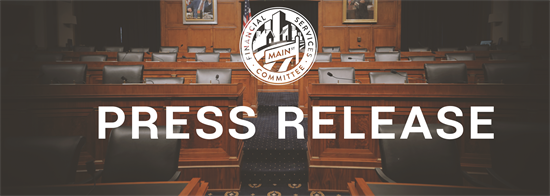Dodd-Frank’s Inconsistent ‘Too Big to Fail’ Process
Washington,
March 28, 2017
The Oversight and Investigations Subcommittee held a hearing on Tuesday to examine the arbitrary and inconsistent process used by the Financial Stability Oversight Council (FSOC) to designate systemically important financial institutions (SIFIs), or those deemed by Washington as “too big to fail.” Members of the subcommittee heard from a panel of witnesses who testified on the designation process and the recently released Financial Services Committee Majority Staff Report. This report revealed significant concerns with the process employed by the FSOC to designate nonbank financial institutions as “too big to fail.” “Dodd-Frank doubled down on the failed lessons of the financial crisis by creating the Financial Stability Oversight Council, enshrining ‘too big to fail,’ and further empowering bureaucrats who have continually side-stepped transparency and accountability while imposing arbitrary rules and back-room regulations on American taxpayers,” said Chairman Ann Wagner (R-MO). “We are in the slowest economic recovery of our lifetimes and we must reform this Washington-knows-best system. Through the Financial CHOICE Act, we will hold FSOC more accountable, end taxpayer-funded bailouts, and open up our economy through smarter regulations to provide American families with the financial relief they deserve.” Key Takeaways from the Hearing:
Topline Witness Quotes: “Apparently some companies are evaluated by the FSOC based on a subjective judgement about the financial stability impact of the firm’s failure in a normal market, whereas other institutions are judged according to the impact their failure may have when financial markets and the economy are in turmoil. The documents clearly show that the FSOC has not evaluated all firms it has examined under a common standard or using uniform assessment criteria.” – Paul H. Kupiec, Resident Scholar, American Enterprise Institute “Even if FSOC were following the rules and designating non-bank financial companies fairly, consistently and with good reason -- which the Committee’s report suggests in not always the case -- the process FSOC has developed to designate non-bank financial companies as SIFIs can disrupt markets and impose unnecessary regulatory burdens and costs that outweigh its benefits to the economy. So despite slight improvements made two years ago, FSOC’s process is still fatally flawed.” –Douglas Holtz-Eakin, President, American Action Forum “The staff paper of FSOC’s evaluations of possible SIFIs, those recommended for designation and those not, details the inconsistencies in treatment. But these differences pale beside the huge discrepancy of those companies chosen for evaluation and those companies not evaluated at all, because the previous Treasury Secretary did not approve their being studied. So the FSOC staff did not even analyze them because of some higher, prior, political judgment. I think this could fairly be characterized as desperately wanting to ‘see no evil’ when it comes to the systemic financial risk of some entities.” –Alex J. Pollock, Distinguished Senior Fellow, R Street Institute ### |


